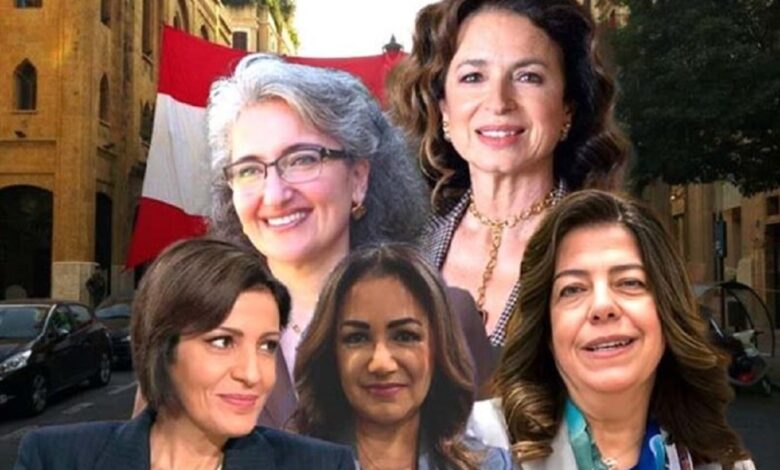Lebanon’s new government with five female ministers: towards national forums on gender equality | By Golda El Khoury

Finally, the first Cabinet of President Joseph Aoun was formed, headed by Judge Nawaf Salam, which restored the hope of the Lebanese about the possibility of putting the country on the path of “reform and salvation.” What is striking and positive about this formation is the appointment of five women in the government out of twenty-four ministerial seats, in a step that reflects a trend towards acknowledging the role of women in the public sphere and in political decision-making processes. Ironically, even if there was not a single woman in the ministry, the Lebanese people would have breathed a sigh of relief over the formation of this government, which was going through complex negotiations.
Although women do not constitute half the number of ministers as some would have hoped, their appointment is a positive and extremely important development. It reflects what was stated in the presidential speech of Oath, which provided – although it did not clearly refer to the issue of gender equality – a comprehensive and integrated vision based on respect for human rights and on ensuring equality at all levels and in various sectors. There is no doubt that this vision will have tangible effects on the opportunities that will be offered to women in Lebanon.
This optimism does not only stem from the number of women in the government, but also from the fact that they deserved their appointments. They all enjoy a high degree of professionalism, credibility and transparency. These female ministers were not chosen based on social or family ties, or party commitments, but rather according to their expertise and experience, which reflects a welcome maturity in the approach applied in appointing women in executive positions. Most importantly, they are not viewed as “sectarian quotas,” even though the Lebanese system is still governed by sectarian quotas in the distribution of positions.
If this dynamic continues, a new culture of election and political representation will see the light in Lebanon. There may come a day when referring to the percentage of women’s representation in government and parliament will no longer be that crucial, because opportunities would be then made available to everyone and on equal footing, as officials are elected or appointed on the basis of their agendas, competence, experience, and dedication to serving the nation and the people.
In addition to the important symbolic dimension of the appointment of five female ministers in the government, the actual impact of the presence of women in decision-making positions on public policies should be highlighted.
International studies have shown that the representation of women in power leads to the adoption of more comprehensive policies in areas such as education, health, economy, and social protection, which contributes to achieving sustainable development and combating corruption. In Lebanon, where the country faces profound economic and social challenges, women’s representation in government can play a pivotal role in restructuring national priorities, especially in the fields of human rights, social justice, and support for marginalized groups.
Here a question arises: will this female representation lead to more balanced and equitable government policies? How can we ensure that this presence is more than just a symbolic representation, but rather a driving force towards fundamental reforms?
To ensure the success of this experience, it is not enough to appoint women to ministerial positions. Rather, their executive roles must be strengthened and supported with legislation that ensures their continued effective participation, whether through legal reforms or mechanisms that guarantee equal opportunities within governmental and private institutions.
Since there is no ministry in Lebanon dedicated to promoting gender equality, this priority should fall on the agenda and orientations of every ministry so that it is integrated into future government policies, laws, and programs.
In this context, although Ms Neemat Aoun, the wife of the President of the Republic in Lebanon, does not play an official role, we have begun to sense her moral and societal influence through her activities and her eagerness to support the efforts of civil society and the media and to enhance their initiatives. Accordingly, we suggest that she leads a civil society initiative to organize comprehensive and inclusive local and national consultations on gender equality that will produce a vision, strategies, and an action plan to be presented to the new parliament next year.
In parallel to these consultations, it would also be suggested that Ms Aoun spearheads an initiative to form a national lobby to enhance awareness about public policies and their impact on gender equality. This lobby will not only provide a platform for dialogue, but will apply a sustained and strategic pressure in order to introduce equality issues into the legislative agenda through coordination with members of Parliament, influencing decision-makers from within government institutions, and employing the media and the economic sector to support inclusive policies guaranteeing equal opportunities.
The comprehensive presidential speech of Oath justifies this hope, and allows us to dream of a future where gender equality is a tangible reality, and not just a demand put forward at official events.
To read arabic version: click here







